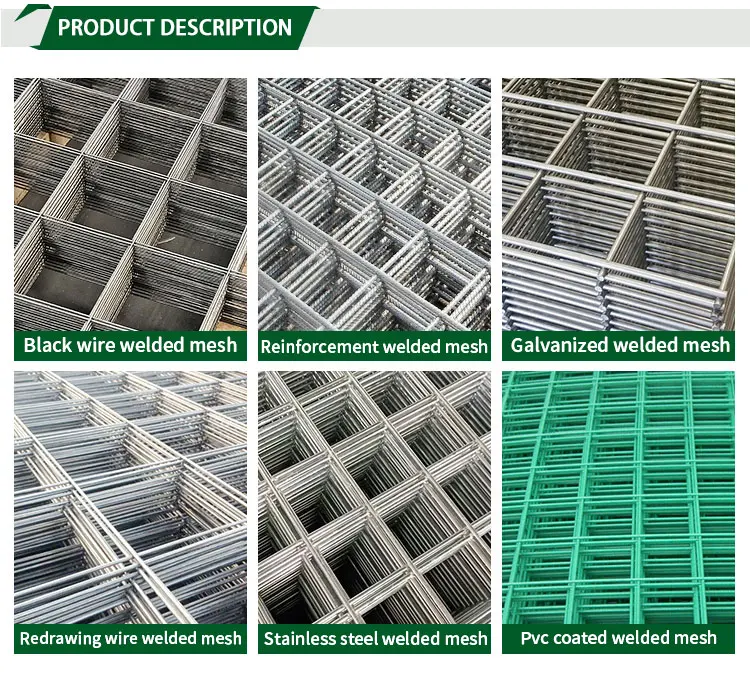Choosing the Right Nails for Building a Durable Wooden Fence
Choosing the Right Nails for Your Wood Fence
Building a wood fence can be a rewarding project, adding both functionality and aesthetic appeal to your home. One crucial aspect of constructing a durable and reliable fence is selecting the appropriate nails. While it may seem like a small detail, the right type of nails can significantly impact the longevity and strength of your fence. In this article, we’ll explore the various types of nails available for wood fencing, their benefits, and tips for installation.
Types of Nails for Wood Fencing
When it comes to wood fences, there are several types of nails to consider. Here are some of the most common
1. Common Nails These are the most basic and widely used nails for wood projects, including fences. Common nails have a smooth shaft and a flat head, making them easy to drive into wood. However, they can be prone to rusting if made from regular steel, so it's best to choose galvanized common nails or those made from stainless steel.
2. Wire Nails Wire nails are thinner than common nails and can penetrate wood more easily without splitting it. They are often used in situations where a neater finish is desirable. Like common nails, they should preferably be galvanized to prevent rusting.
3. Decking Nails Specifically designed for outdoor use, decking nails come coated to resist corrosion. They usually feature large heads and thicker shafts, providing a robust anchor for the boards in environments subject to moisture and temperature fluctuations.
4. Spikes For heavier sections of wood in a fence, such as posts, spikes provide a strong connection. These nails are thicker and longer than standard nails, ensuring the posts remain secure over time.
5. Collated Nails If you’re using a nail gun for your fencing project, collated nails can be a great option. These nails are organized in strips or coils and fed into the nail gun automatically, speeding up the installation process.
Benefits of Using the Right Nails
Choosing the right nails can enhance the performance of your wood fence in several ways
nails for wood fence

- Durability Properly selected nails contribute to the overall durability of your fence. Galvanized or stainless steel nails resist rust and corrosion, which is essential in outdoor settings exposed to rain and humidity.
- Strength Using the appropriate size and type of nail for the materials involved can significantly strengthen the fence. For heavier panels and posts, larger and longer nails will ensure stability and support.
- Aesthetic Appeal The right nails can also affect the visual appearance of your fence. Opting for nails with a finishing head can create a sleeker look, especially if they are countersunk.
Tips for Nail Installation
1. Consider Weather Conditions If you live in an area with frequent rain or changing temperatures, opt for galvanized or stainless steel nails to protect against rust.
2. Nail Size Matters Typically, a 10d to 16d nail works well for most wood fence panels. Make sure that the length of the nail is at least 1.5 times the thickness of the wood being fastened.
3. Space Your Nails Evenly For best results, nails should be spaced around 12 to 16 inches apart along the length of the fence boards, as this spacing provides adequate support without compromising the wood.
4. Pre-Drill for Certain Types of Wood Hardwoods can split easily if you try to drive in nails without pre-drilling. Consider pre-drilling holes to avoid damaging the wood.
5. Seal the Fence After installing your fence, sealing it with a wood preservative helps protect both the wood and the nails, ensuring the entire structure remains strong for years to come.
Conclusion
Choosing the right nails for your wood fence is crucial to ensure its longevity and stability. By understanding the various types of nails available and their respective applications, you can make an informed decision that will enhance your fencing project. Whether you are a DIY enthusiast or hiring a professional, paying attention to this important detail will help you build a beautiful and lasting fence.
-
Innovations in Razor Barbed Wire Design TechnologyNewsAug.11,2025
-
Roofing Nail Compatibility with Different Metal Roof TypesNewsAug.11,2025
-
Welded Wire Mesh for Rockfall Protection BarriersNewsAug.11,2025
-
Galvanized Wire Corrosion Resistance TestingNewsAug.11,2025
-
3D Fence Solutions Preventing Bird CollisionsNewsAug.11,2025
-
Using Chain Link Fence for Urban Garden SupportNewsAug.11,2025




